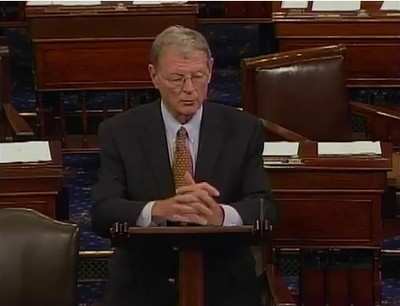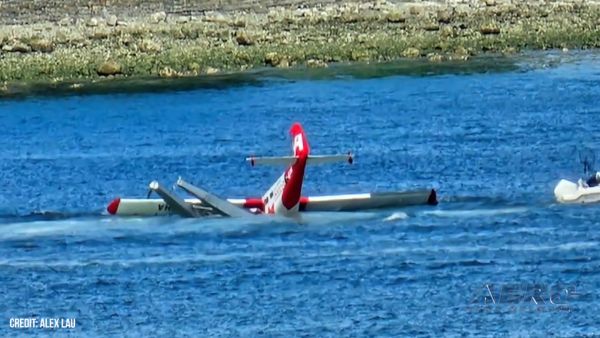Bill Empowers The Voices Of Pilots, Invests In Airport Infrastructure, And Ensures More Opportunities For A Trained Aviation Workforce
U.S. Sen. Jim Inhofe (R-OK) and Sen. Angus King (I-ME) have introduced the Promoting the Launch of Aviation’s Next Era (PLANE) Act of 2019. This bipartisan legislation would empower the voices of pilots, invest in airport infrastructure and ensure more opportunities for a trained aviation workforce.

“The PLANE Act truly sets a positive path for the future of the aviation industry,” Inhofe (pictured) said. “This legislation enhances legal protections for pilots that must contend with the federal bureaucracy, requires additional transparency when FAA makes decisions impacting aviation stakeholders and promotes investment at general aviation airports—the backbone of our national aviation system. It would also secure the future of aviation by ensuring the air traffic controllers and FAA designees our aviation community depends on have access to needed opportunities for training and development.
“This bill would provide the opportunity for general aviation airports to be designated disaster relief airports to better support community disaster response and recovery efforts. After the recent flooding and tornadoes in our state, Oklahoma knows all too well the need for improved infrastructure when responding to natural disasters. I’m pleased my legislation will give this additional support to communities in our state and across the country. Finally, all aviation user fees should go to support the aviation community, and this bill would correct the diversion of aviation fuel taxes that supports non-aviation infrastructure.”
“For rural Maine communities, general aviation is a vital lifeline – both literally and economically,” said King. “This legislation would make important investments in this pillar of our nation’s transportation system and would cut through bureaucratic burdens, so these airports, the men and women who operate them, and the pilots who travel to and from them can continue providing vital services to rural Maine people. This is an important, bipartisan bill that will help power local economies and ensure all Maine people can access lifesaving medical care when facing an emergency.”
The bill has the strong support of stakeholders in the pilot community and general aviation industry. In a letter touting the introduction of this bill, stakeholders from across the entire community wrote:
“The bipartisan PLANE Act sets the stage for the future of general aviation by empowering the voices of pilots, investing in airport infrastructure, and ensuring more opportunities for a trained aviation workforce…. We believe this legislation should be enacted to promote the launch of aviation’s next era for the benefit of the entire aviation community.”
Details of S. 2198, the PLANE Act:
- Explicitly states that pilots facing an investigation by FAA can appeal to a federal district court for a de novo trial and clarifies which party bears the burden of proof.
- Enhances legal protections for the aviation community by ensuring the NTSB has the authority to review the denial of an airmen medical certificate and require FAA to find reasonable grounds to require the reexamination of a pilot certificate.
- Requires additional transparency in any FAA rulemaking, and full consideration of the impact any rulemaking may have on any certificate holders.
- Establishes a public-private partnership for general aviation airports to attract private sector investment
- Designates qualified GA airports as “Disaster Relief Airports,” so that when a disaster occurs, they have the infrastructure to better support community response efforts.
- Empowers trained private citizens who want to certify pilots and aircraft (DPE/DAR) by giving them necessary civil liability protection.
- Ensures that tax receipts from all aviation fuel sources are deposited in the airport and airways trust fund.
- Allows Air Traffic Control applicants to include classroom and simulation training within an FAA-approved formal training process.
(Source: Sen. Inhofe news release. Image from file)
 ANNouncement: Now Accepting Applications For Oshkosh 2024 Stringers!!!
ANNouncement: Now Accepting Applications For Oshkosh 2024 Stringers!!! Aero-News: Quote of the Day (06.13.24)
Aero-News: Quote of the Day (06.13.24) ANN's Daily Aero-Term (06.13.24): Dead Reckoning
ANN's Daily Aero-Term (06.13.24): Dead Reckoning ANN's Daily Aero-Linx (06.13.24)
ANN's Daily Aero-Linx (06.13.24) ANN FAQ: How Do I Become A News Spy?
ANN FAQ: How Do I Become A News Spy?



